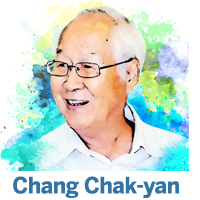In his inauguration speech, Taiwan’s new leader, Lai Ching-te, showed his true separatist colors, turning a blind eye to the 1992 Consensus, which embodies the one-China principle. He painstakingly demonstrated his administration’s agenda — to achieve “Taiwan independence” — indicating his whimsical expectation of being “endorsed and protected” by democratic countries. Putting these two points together, it is logical to say that the island’s leader is bullheaded about confronting the Chinese mainland.
 Lai’s attitude is not incidental, but natural, given his record of issuing provocative “Taiwan independence” rhetoric over an extended period. It is easy to see there are three major sides to his performances and behavior, which have emerged during his political life.
Lai’s attitude is not incidental, but natural, given his record of issuing provocative “Taiwan independence” rhetoric over an extended period. It is easy to see there are three major sides to his performances and behavior, which have emerged during his political life.
First, he is overconfident because of his successes in every major election, which makes him believe nothing can fail him politically; he displays a self-elated belief that brings more danger than hope to an individual, and more peril than prosperity to a region. When it comes to cross-Strait relations, he holds the same attitude of unrealistic overconfidence.
Second, his belief in “Taiwan independence” originated when he took up membership of the Democratic Progressive Party. He comes from the city of Tainan, where most of the island’s separatists live. Surrounded by this separatist social and political milieu, he has never bothered to hide his true colors as a bigoted separatist throughout his political life. His political relationship with separatists, therefore, is entrenched and strong.
After all, even though he is now the head of the island, his separatist colors have been evident throughout the election process, which bodes ill for his tenure. He has embarked on a high-risk path that is leading the island into a hopeless corner.
If the US remains passive when such drills are conducted, Lai and his separatists will definitely lose confidence in the belief that they can expect to receive US protection. By then, Lai and his party will have no ability to convince voters that they will be protected. If Lai and his party were to be voted out of office, support for reunification would eventually return
Because of his complete ignorance of the 1992 Consensus, he nullifies the hard-earned communications structures built up jointly by the Straits Exchange Foundation and the Association for Relations Across the Taiwan Straits. All their contractual channels will be suspended, making it impossible for the island to maintain constructive contact with the mainland. This is indeed a very dangerous move.
According to the late American political scientist Harold Nieburg, political violence will definitely occur if all bargaining channels between contacts are suspended, and there can be no “give-and-take” in the end. In such a case, political extremists would find that the only way out is to destroy those who hold the opposite political position, and that would be disastrous and destructive. Lai’s decision to cut off all communications channels with the mainland indicates that he would choose to solicit foreign intervention to fight against the mainland.
Unfortunately, Lai’s overconfidence makes him believe that a confrontation between the United States and its allies, and the Chinese mainland, would last for a long time — just as the Cold War between the US and the Soviet Union did — giving him enough time to secure his “Taiwan independence”. For Lai, Washington needs Taiwan to confront Beijing as much as Taiwan needs US protection, and he believes that, with the support of the US alliance, a war with the mainland could last long enough to enable him to achieve independence for the island.
Lai’s political agenda is a complete miscalculation. To counter US interference in the island’s affairs, Beijing has plenty of tactics at hand. The People’s Liberation Army can conduct blockade drills to surround the island time and time again. The impact of such drills could effectively isolate Taiwan and deter foreign investment.
More importantly, Taiwan’s voters will not be passive in the face of constant PLA blockade drills when the next election is held; Lai’s chances of being reelected are highly unlikely.
Also, the tactic of conducting blockade drills, as we saw with the latest drills, denies the US and its allies any excuse to intervene. As a result, the PLA could launch drills any time it wants to contain separatist activities on the island. If the US remains passive when such drills are conducted, Lai and his separatists will definitely lose confidence in the belief that they can expect to receive US protection. By then, Lai and his party will have no ability to convince voters that they will be protected. If Lai and his party were to be voted out of office, support for reunification would eventually return.
The author is the dean of the Taima Journalism and Information Academy, Malaysia.
The views do not necessarily reflect those of China Daily.


